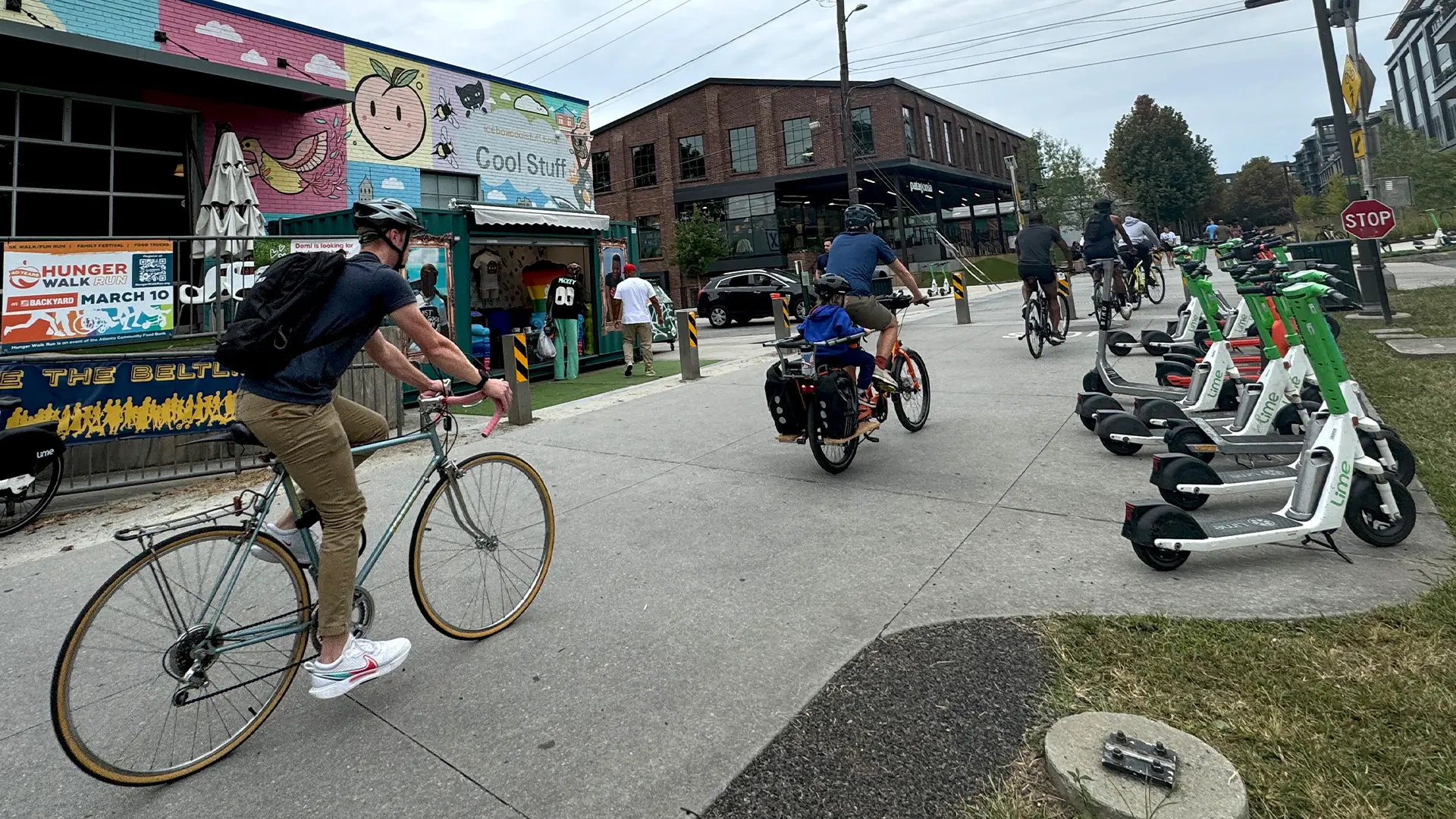Micromobility offers a safe, accessible, and affordable way to get around, which is great news for employers and their workforce. Traffic and transportation gaps during work commutes can cause tardiness, commuter stress, and lowered productivity, which negatively impacts business and morale. Since micromobility users can start and end their trips almost anywhere, the City of Atlanta promotes scooters and bikes as driving alternatives to reduce commuter issues, allowing employees a new way to get to work or meet first-last mile connections.
If you’re an employer wanting to encourage workers to take micromobility to the workplace, here is important information you can share with them.
How much does it cost to rent a scooter or e-bike?
Currently, Atlanta only approves two companies to set up dockless shared mobility programs in the city – Lime and Bird. Lime and Bird both charge a fixed cost to unlock each device and a per-minute rate when you ride. Local rates can be found in their respective smartphone apps before starting the ride. Rates may vary across different locations and times of day. The average cost per scooter trip in Atlanta is $6.31, according to Central Atlanta Progress.
Lime also offers discount programs:
- LimePass: Allows you to save on rides with discounted minutes and unlimited free unlocks.
- Lime Access: Provides reduced fares to eligible riders.
Where can you get a scooter or e-bike?
Most companies offer smartphone apps where riders can locate a device to rent near them. The highest ridership corridors in Atlanta include the East Beltline Trail, Midtown, Georgia Tech’s campus and Centennial Olympic Park, according to GovTech. PropelATL also has information on local bike shops that offer bike rentals.
When can you use micromobility?
The City of Atlanta established a nighttime riding restriction for rented scooters/e-bikes that is currently in effect. No devices may be rented from midnight to 4 a.m. This restriction does not apply to any personally owned devices, which owners can ride at any time.
What are some safety tips for using micromobility?
The Atlanta Police Department has provided safety tips for commuters who use micromobility to help protect everyone navigating streets and sidewalks in the city, including:
- No riding scooters on the sidewalks
- Ride in LIT Lanes (bike lanes) or in the right lane of the street
- No using a cell phone while riding
- Ride one person per scooter
- No blocking crosswalks, doorways, driveways or anything else
- Follow traffic laws, the flow of traffic and always yield to pedestrians
How does using micromobility benefit Atlanta commuters?
Micromobility helps commuters conveniently avoid traffic and crowded transit. A smoother and shared commute to the workplace can also ease daily stress, leading to higher productivity and job satisfaction. Depending on the length of the trip, micromobility can be a low-cost alternative to public transportation and ridesharing, saving residents money on their commute. Active commutes, like biking or scooting, are especially great for one’s physical and mental health.
How does micromobility benefit employers?
Commuter incentives are a great way to attract and keep employees. Employers can even receive tax breaks for helping their workers use commute alternatives! Set up a commuter program or commuter benefits package at your company with the help of GCO. Here are some of the great rewards your workers could earn:
- Gimme Five – Take and log a clean commute to earn $5 a day (up to $150 over a 90-day period).
- $25 prize – Log your clean commutes to be entered to win a $25 cash prize each month.
- Commuteperks – Unlock discounts for popular local and national businesses when you log a minimum of 5 days of clean commutes per month.
- And more!
Check out our blog to learn more about ATL’s micromobility movement.
